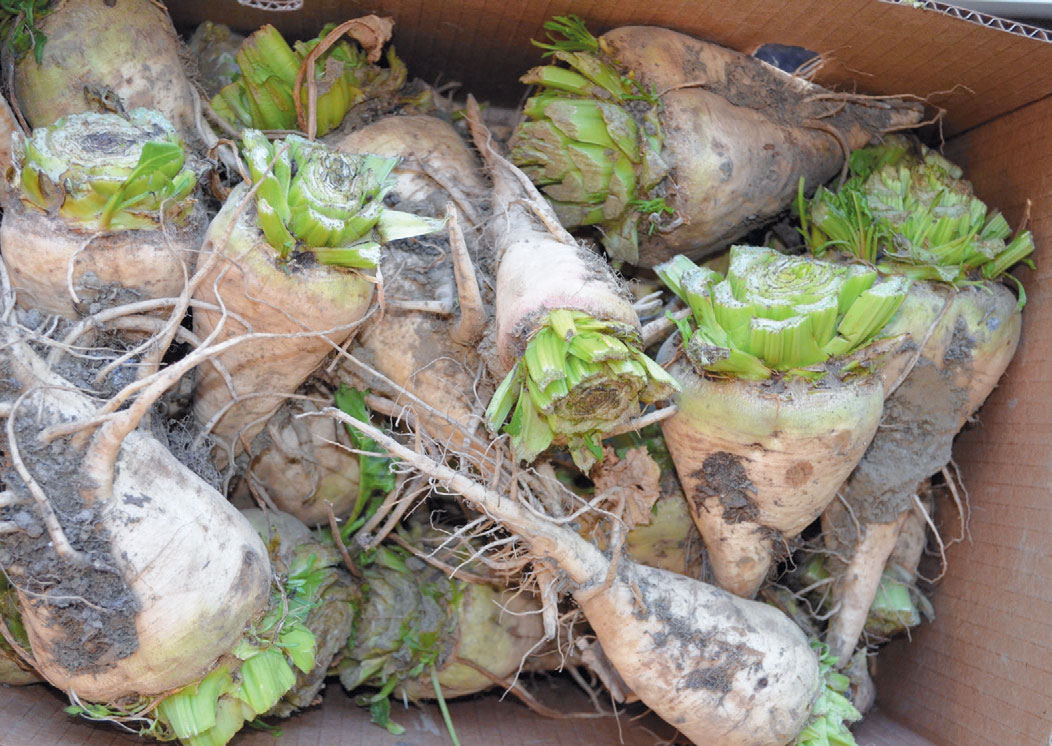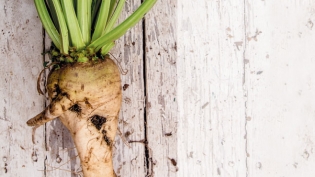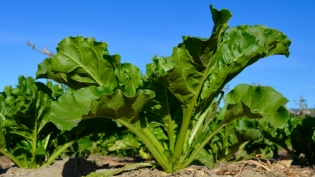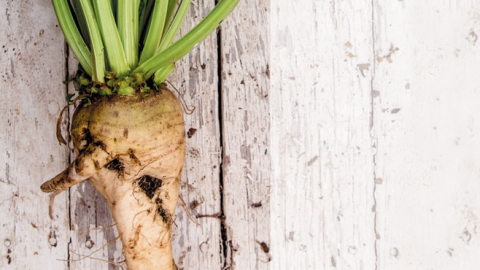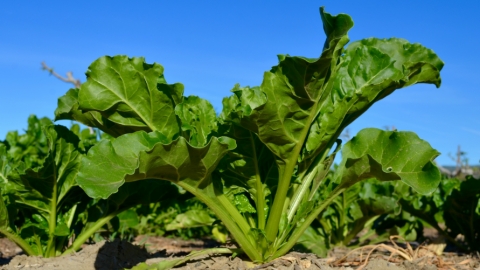Getting Beat by a Sugar Beet
When farmer Chris Sayer drops a 40-pound box of just-harvested, dirt-crusted sugar beets at your front door, there’s only one thing to do: process them into sugar. I had visions of turning the result into cookies. How delicious they’d be!
Call me naïve.
The endeavor sent me to the internet, where I read a lot of posts, gleaned what I could and forged my own path. I scrubbed ’em, peeled ’em, chopped ’em into chunks and placed those chunks in a slow cooker on low with a little water and left it until the beets had completely broken down (about 30 hours). The strained beet juice went into a parchment-paper-lined rimmed baking sheet, where it reduced at 170° (my oven’s lowest setting) for a few hours. The beet solids went into my compost bin.
Instead of crystalizing, the syrup became chewy like a jelly candy and dark with a malty flavor that was a bit fruity.
Next, I figured I’d try using a recipe from Survivopedia.com, because, as one person pointed out, if there’s a catastrophic event you’ll want to know how to make sugar. Giving me hope was that the post had a photo of granulated sugar.
Again I scrubbed and diced the beets, adding just enough water to the pot to cover. Once they were cooked, I strained the beets in cheesecloth and returned the syrup to a simmer until the mixture resembled honey. As it cooled, the sugar was supposed to crystalize. “Remove crystals and smash into a powder with your fingers so that it looks like table sugar,” the recipe says. Wrong.
The caramel-colored goo had the consistency of corn syrup, which it maintained even after cooling. Its sweetness had a bitter edge, a possibility online posters had warned about. A spoonful in tea was interesting—sweet, caramel-y with a subtle beet flavor.
Another post, this one from Richter’s Herbs in Canada, specified using milk of lime (calcium hydroxide or hydrated lime in water) and a shot of seltzer water for sugar-making. (Seltzer water mimics the carbon dioxide used in commercial processing, according to the post.) And an orange juicer and percolator top.
Instead, I think I’ll just continue buying organic sugar, already in granular form. And let Chris keep his harvest as a cover crop.


